Drawing Facial Expressions
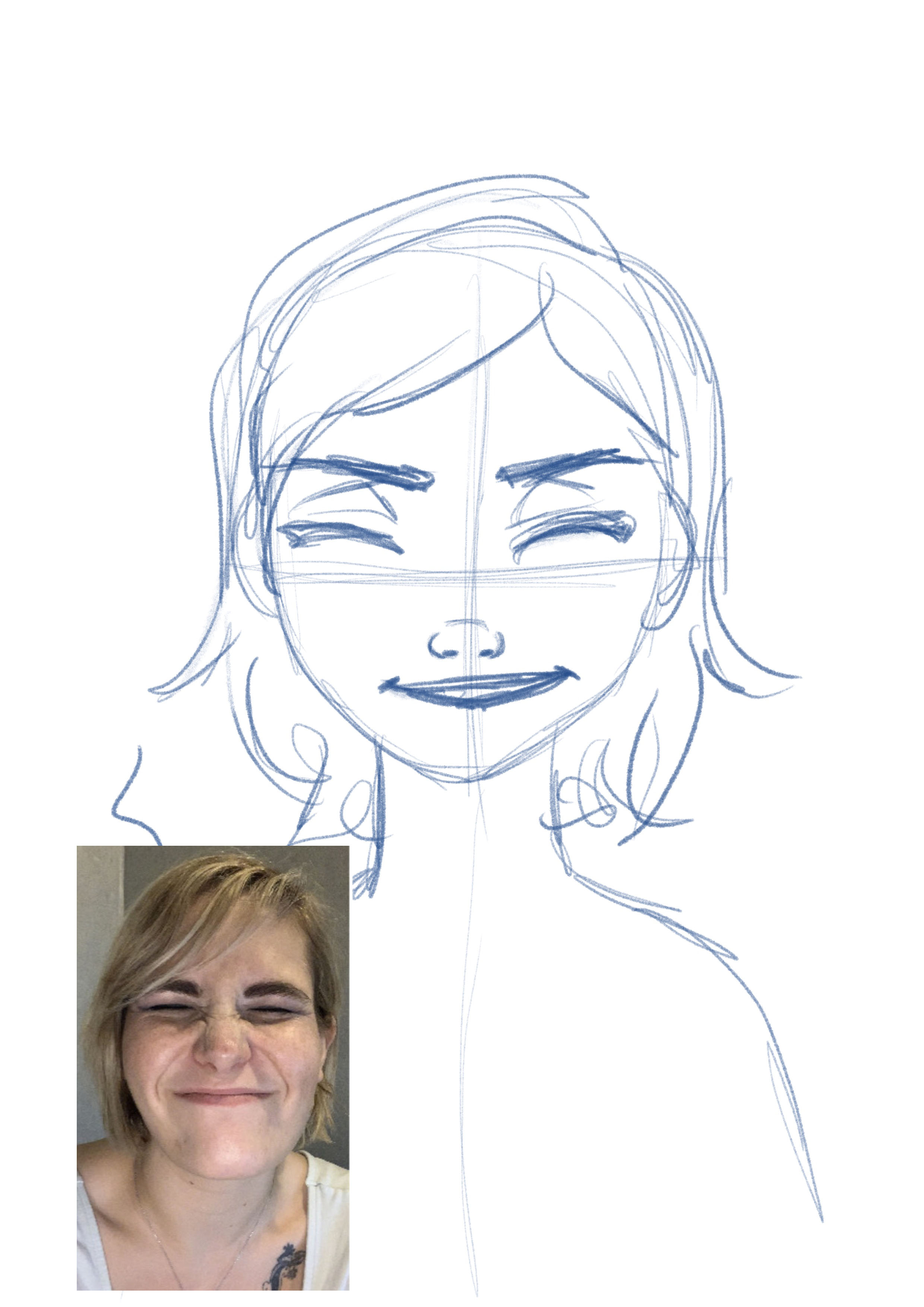
Before we dive into the article, here are 3 definitions you need to know:
Facial expression: a visible sign on the face that indicates what a person is feeling. Facial expressions can show joy, sadness, pain. etc.
Emotion: an expression of a feeling.
Feeling: an emotional state due to emotions.
We will come back to this later in the article...
When drawing a character, the most important step is the face. Indeed, it is through it that all emotions and expressions will be conveyed. Even if the pose of your character can give an indication of what he or she is feeling, if the face expresses nothing, your drawing will be meaningless.
It is said that drawing a face and its expressions is very complicated, but it is not impossible either; with practice, you can achieve it.
MAIN FACIAL EXPRESSIONS
And for practice, your main guinea pig will be your own face!
Get a mirror or a camera and capture your face while mimicking different expressions.
For my part, I always have a pocket mirror so I can use myself as a reference when I draw a face. I even mimic the expression I'm drawing outside of the mirror, completely unconsciously, because it makes the task easier.
At first, you'll think that you're being ridiculous, but eventually, you'll see that it can only help you!
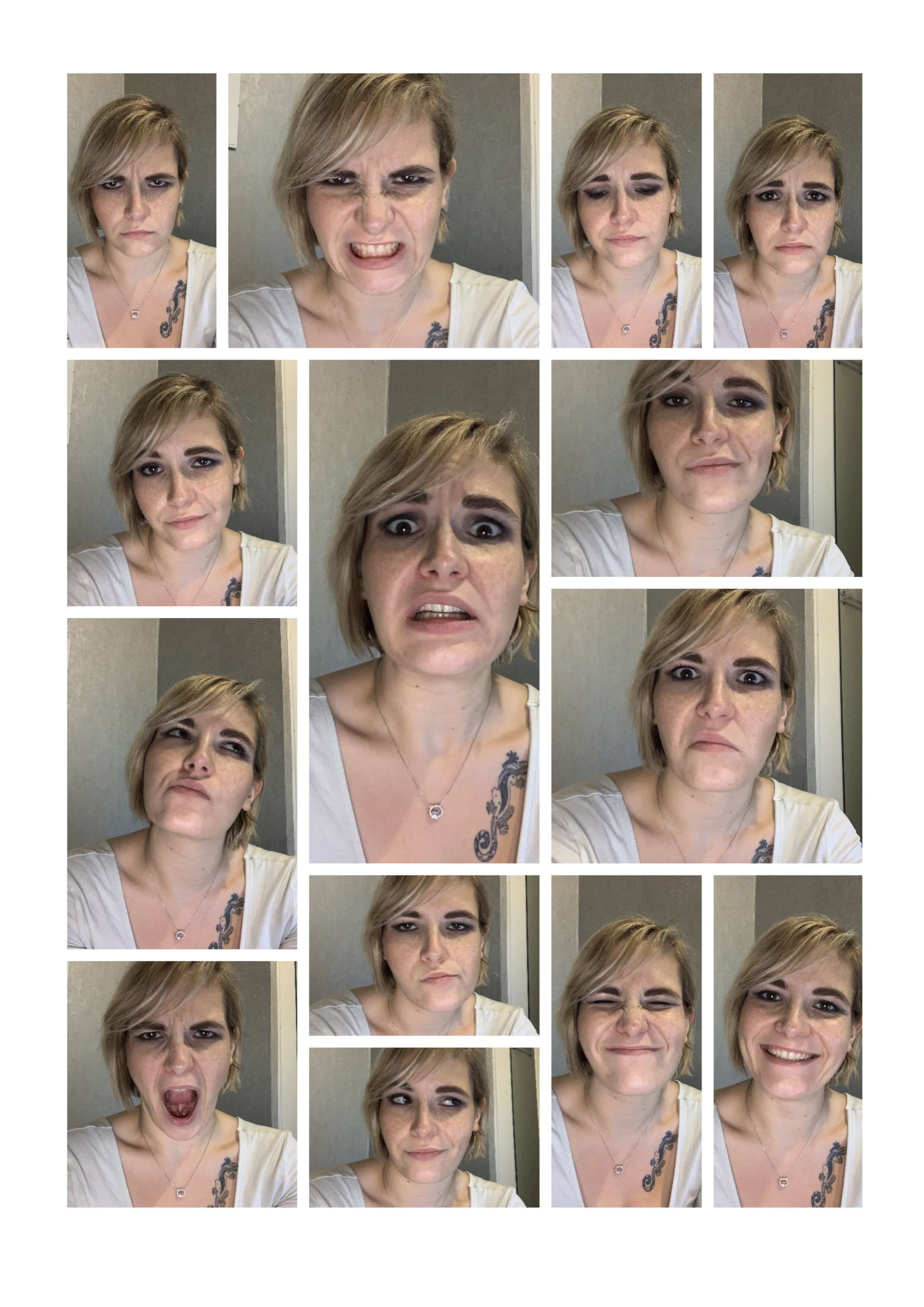
But before moving on to practice, it is important to fully understand and know the different expressions.
To begin with, be aware that there are expressions and micro-expressions.
- Expressions are consciously emitted by the brain to convey an emotion to our interlocutor. They serve to communicate. It's up to you to decide what to do and when, based on your inner feelings.
For example, you're not going to laugh or cry in front of just anyone.
- Micro-expressions, however, are emitted unconsciously. They rather appear in reaction to a stimulus. They are quite brief and are a derivative of expressions. They show what you really think.
Regarding the drawing, we will focus solely on expressions. However, if micro-expressions interest you, you can follow the research of Dr. Paul Ekman.
Speaking of Dr. Ekman, according to his research, there are 7 main expressions: joy, sadness, fear, disgust, surprise, contempt, and anger.
They are called "universal expressions." From these expressions, we can create a multitude of signals to show our emotions.
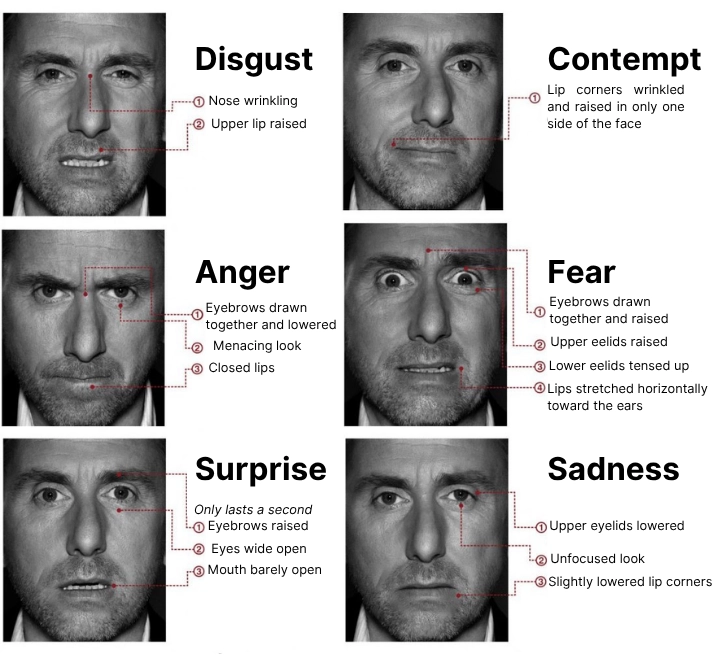
Take joy, for example. It is generally represented with a classic smile, sparkling eyes, and slightly raised eyebrows. But the more you enlarge this smile and the more you intensify the expression, the more you move from simple joy to "happy."
And it's like that for all emotions!
LEARN TO DRAW DIFFERENT FACIAL EXPRESSIONS OF A CHARACTER
At the beginning of the article, I gave you 3 definitions: expression, emotion, and feeling.
With my explanations, you might understand better the difference and the connection between the 3.
Expressions are the foundation of emotions, and both (expression + emotions) illustrate feelings. Master the 7 universal expressions and from these expressions, you will then be able to draw emotions to depict the feelings of your characters.
Example: a character in love is usually portrayed smiling, with red cheeks, and sparkling eyes.
The expression = joy (smile)
The emotion = happy (smile + sparkling eyes + red cheeks)
Feeling = love
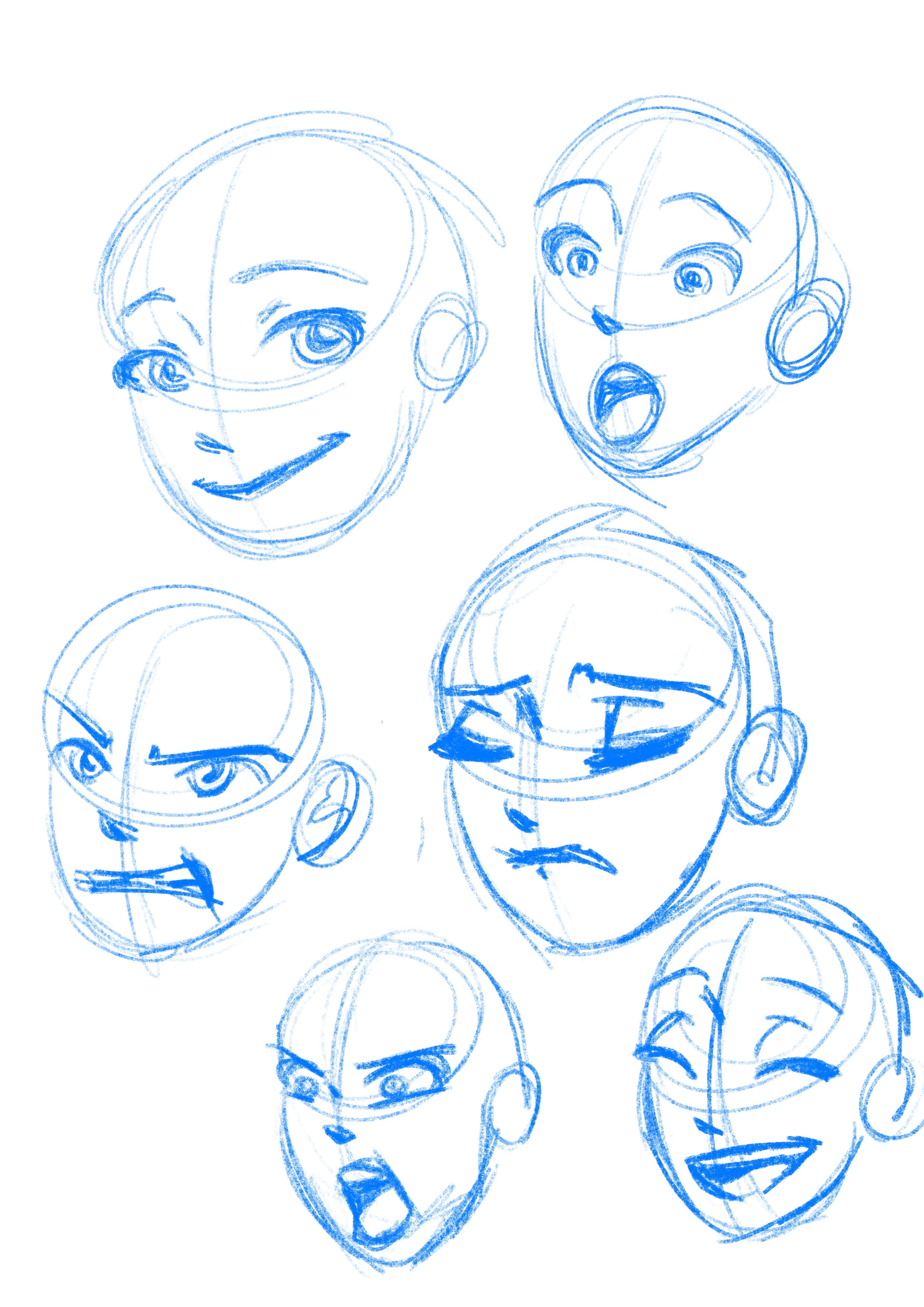
Reflect on the feeling that your character is experiencing, then choose the universal expression that best matches it and adjust it to convey an emotion... You will soon be able to put this into practice, but just before that, you need to be aware of one thing.
Our face is made up of many facial muscles that allow the face to twist in all directions and express a ton of emotions. So, you can accentuate the expressions to the maximum. Try it with your own face, you will be surprised to see all that it is capable of doing!
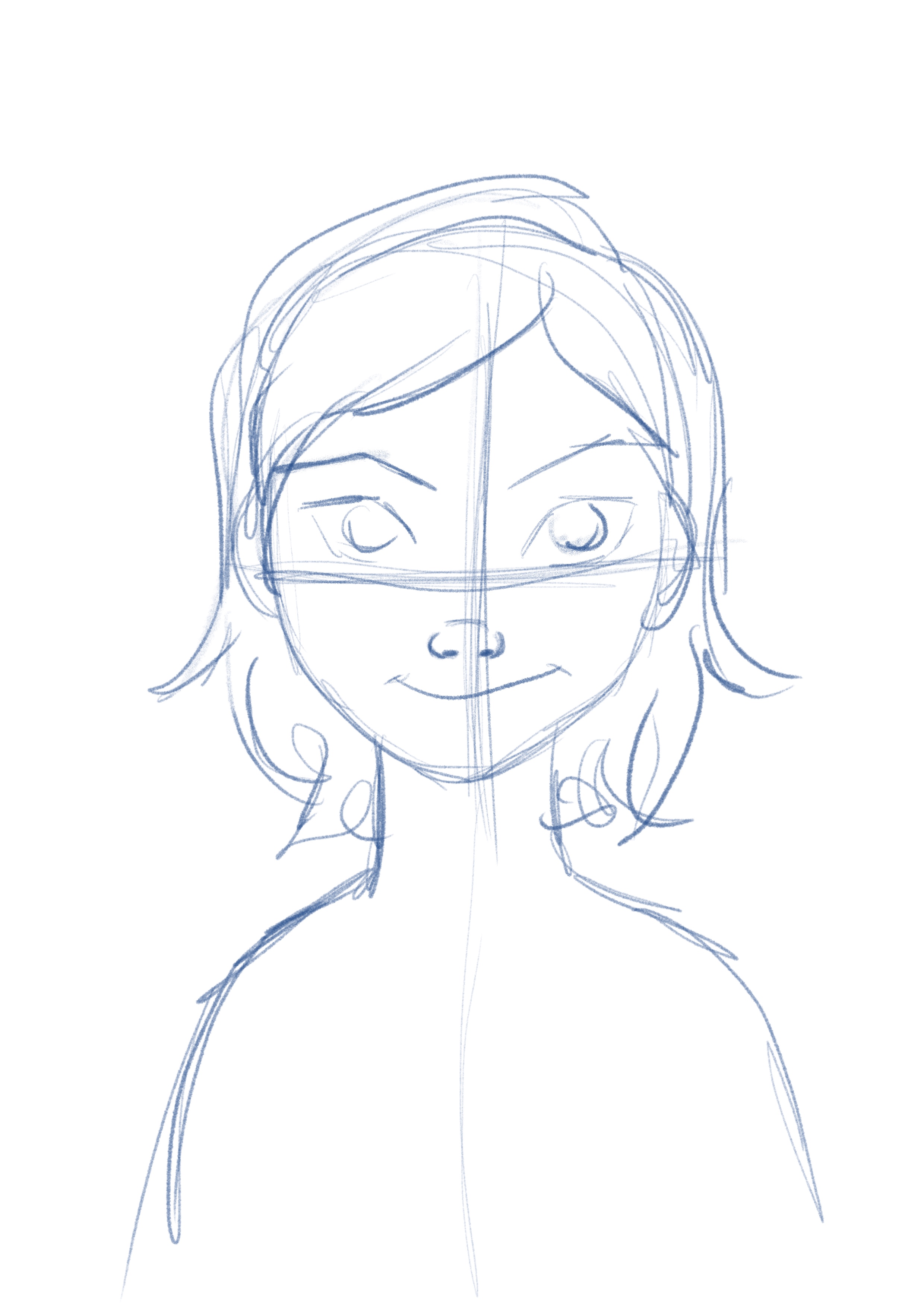
Now that I've finished stuffing your head with knowledge, you can start practicing! ;)
As mentioned above, equip yourself with a mirror.
Draw the base of a face and when you're ready, put on your best expression and draw your reflection!
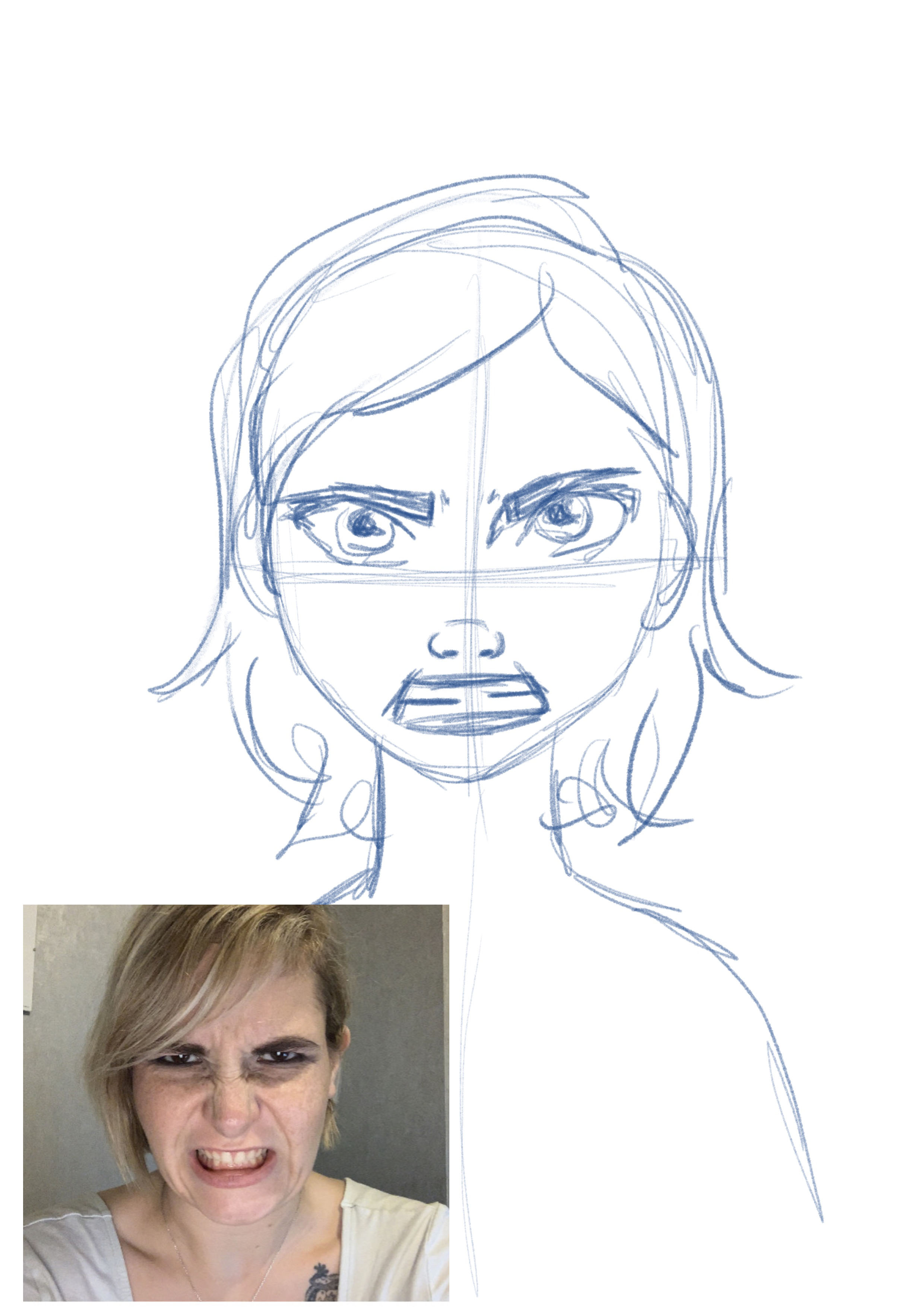
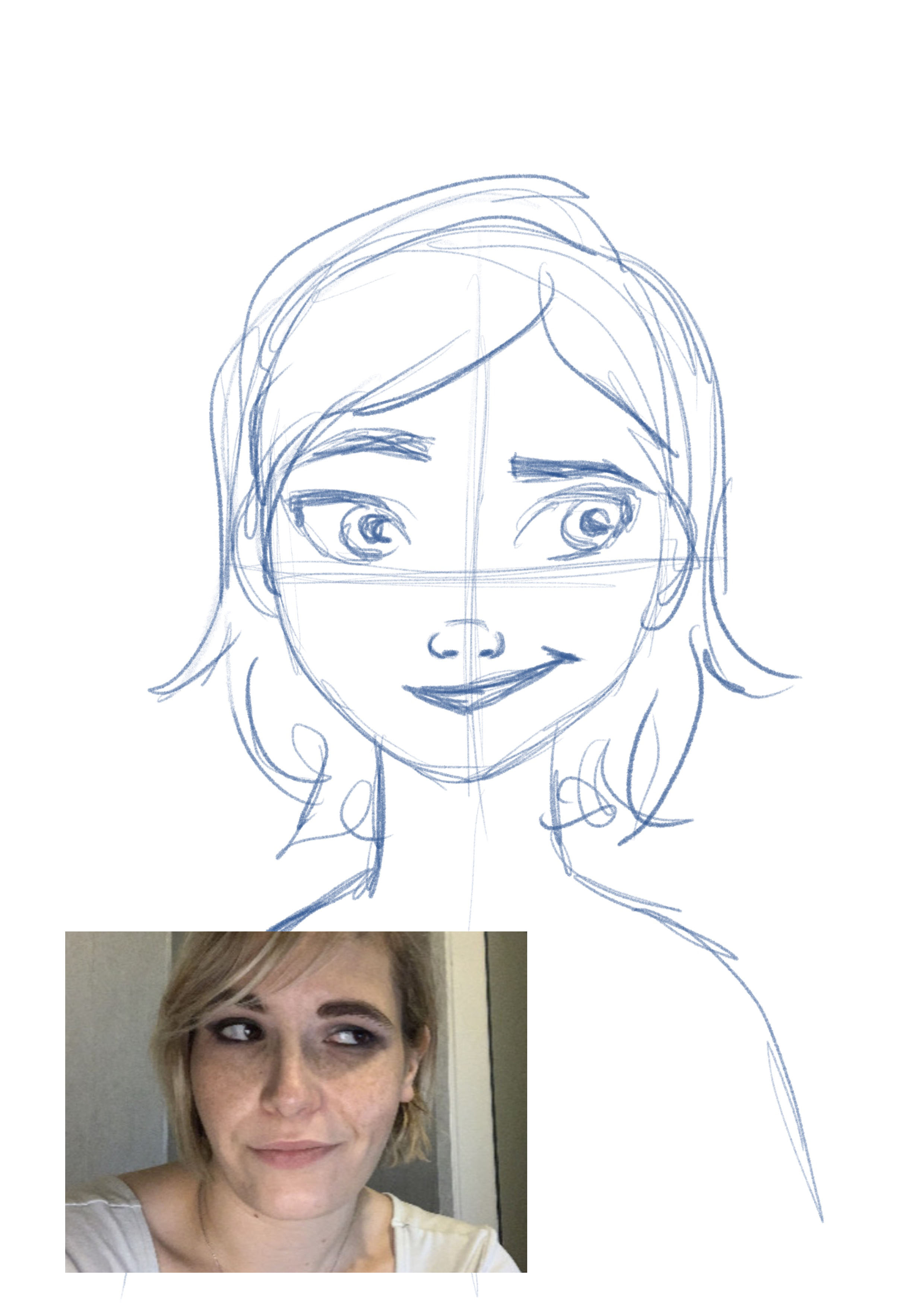

Finally, if you're still having trouble drawing expressions, there is a little trick to help you: emoticons.
We don't think about it enough, but they represent emotions and expressions in a simplified way! So choose the emoticon that matches your feeling and draw using it :)
PS: If you're interested, the series "Lie To Me" focuses on expressions and micro-expressions ;)
Illustrator and writer: Coralie

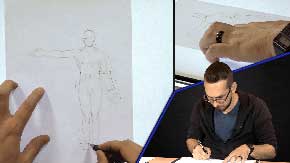
Great, thank you! :)
I'll remember that, thank you!
Great, thank you
Awesome, thank you
XD the references to "Lie to Me", great series by the way 👍🏻
top and very useful :) thank you very much